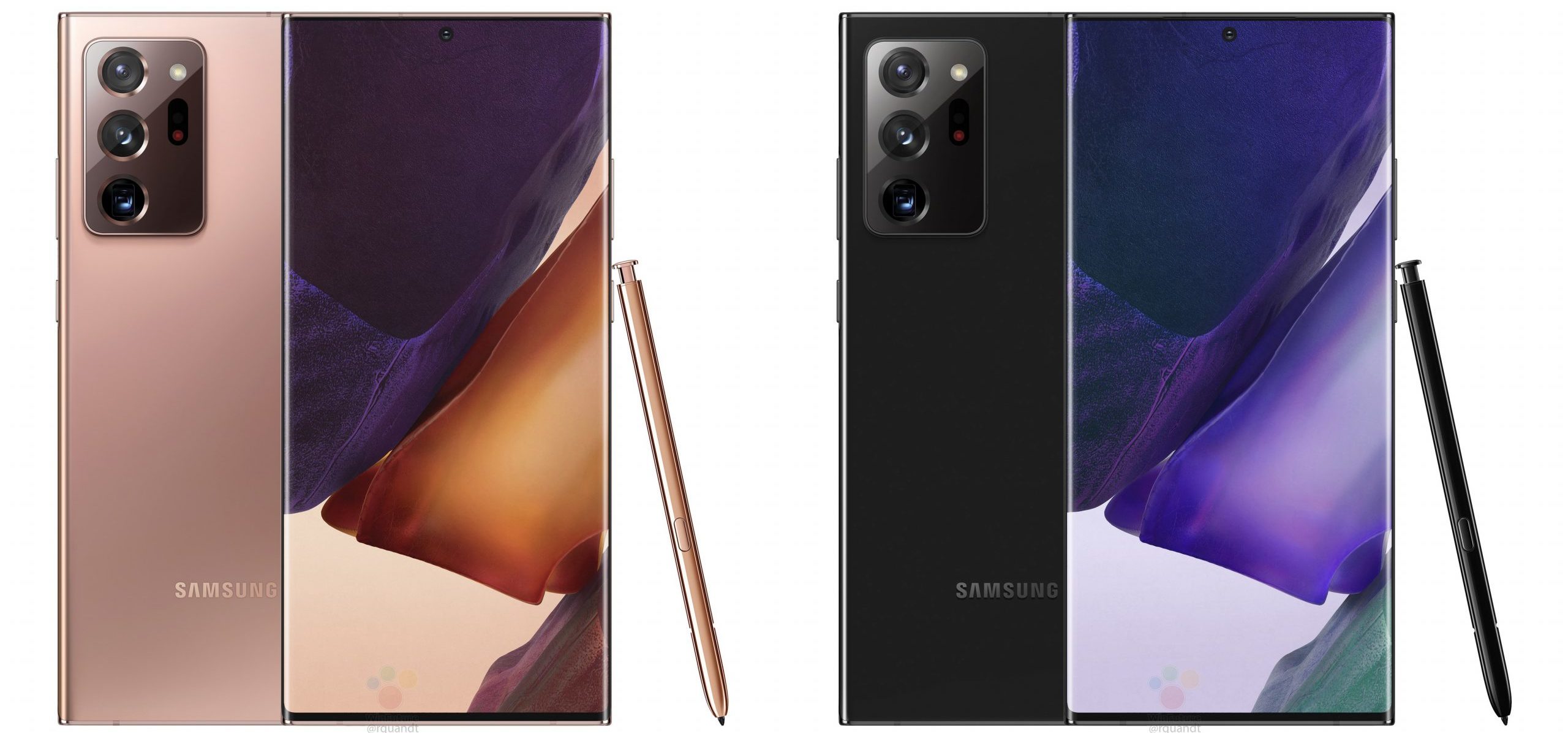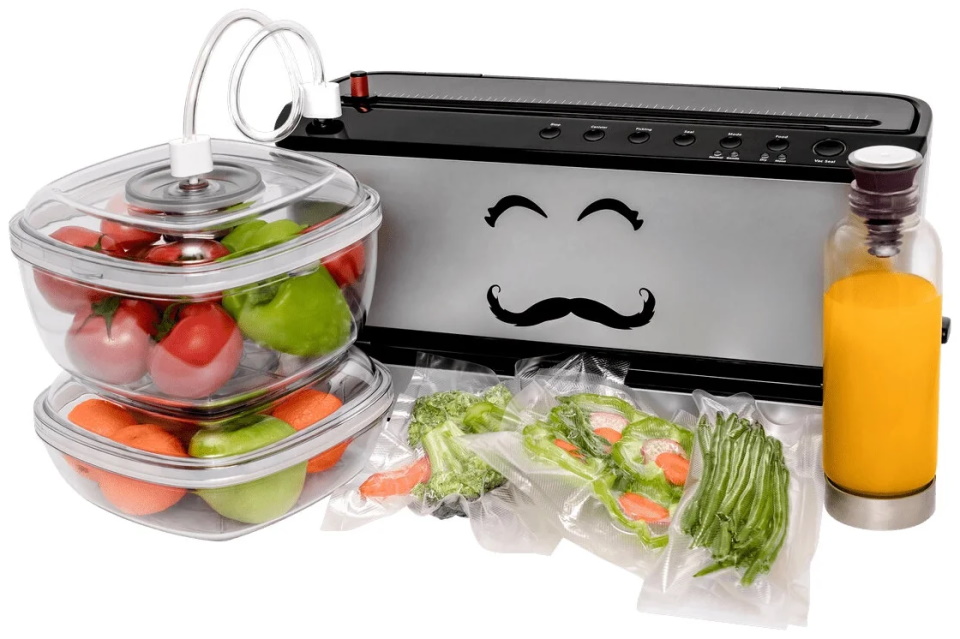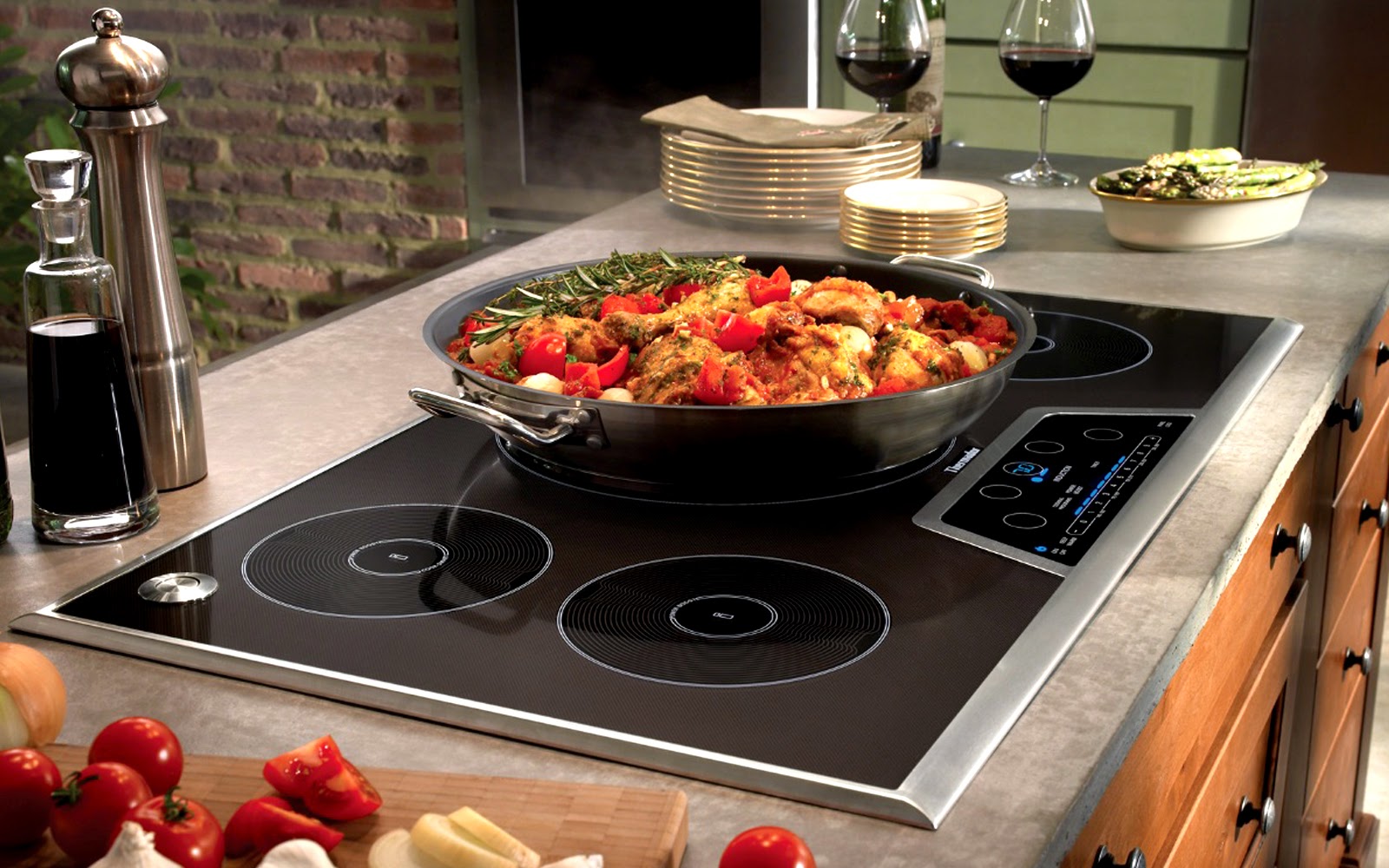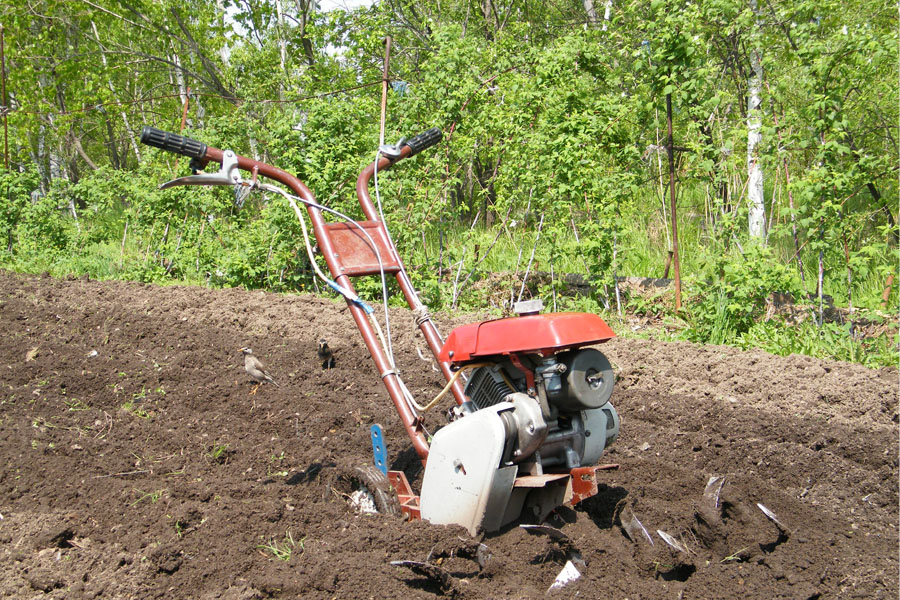Rating of the best filters for kitchen hoods in 2022
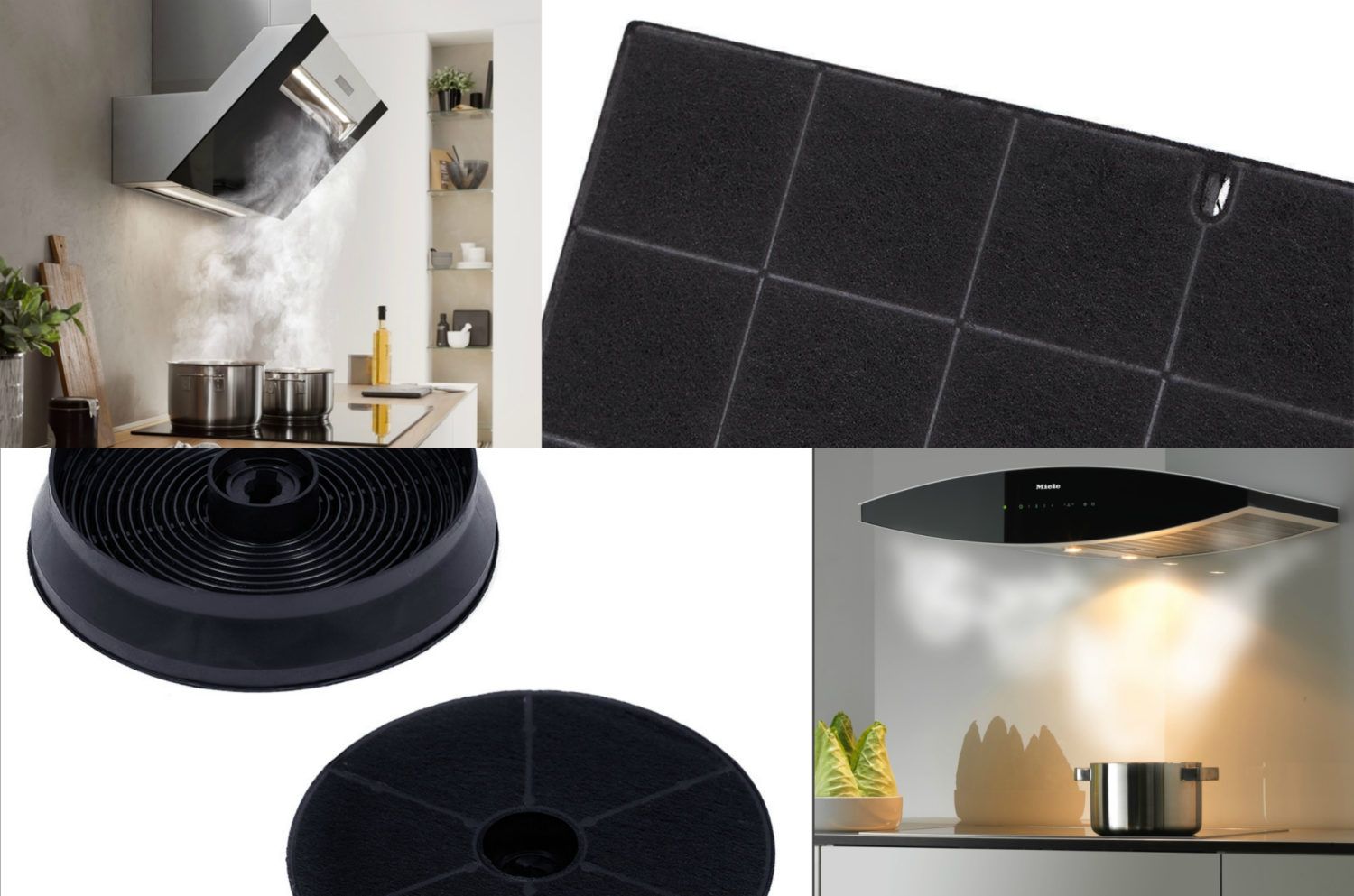
The kitchen is a place where a significant part of the life of any housewife, as well as all household members, passes. It is she who is always equipped with the most comfortable and cozy, because both cooking and eating should bring pleasure and convenience. An important household appliance in any kitchen is the extractor hood, which is responsible for the cleanliness and freshness of kitchen aromas. This is a guarantee of the health of the cook and a way to remove culinary odors from the premises.
Hoods come in different sizes, modes of operation, air extraction methods, filters used and control methods. The most fundamental criteria when choosing a hood are the types of structures, methods of removing air and the filters used.It is on this that the effectiveness of the performance of assigned functions depends. Filters for kitchen hoods have become the topic of this article.
Content [Hide]
Hoods by variety of designs
- Suspended.
Placed directly above the cooking surface, it is equipped with filters that absorb fine particles and fat that rises with the steam. Suspended models with output to the ventilation ducts using a corrugated hose work more efficiently.
Compactness (suitable even for the smallest kitchen) and affordable cost made this design popular.

- Embedded.
It is completely hidden in the closet and does not stand out against the background of the kitchen set as a separate element. The functionality may vary depending on the cost and additional features.
- Dome.
It implies connection in the ventilation system, and therefore is considered the most powerful and is suitable for large kitchens.
- Corner.
Interior option, when a hob with corner placement is provided.
- Island or T-shaped.
As a rule, for large kitchen complexes, where a ceiling mount structure may be required. These are the most powerful models that perfectly eliminate odors.

Ways of air removal of hoods
- Flow - pulls into the ventilation ducts or into a specially made exit to the street. Hoods with this type of work are the most effective.
- The recirculation method is used in suspended and built-in exhaust units and involves cleaning through filters: the first filter traps fats and small particles, and the second cleans the air directly.
- The combined type combines both methods of the above with the possibility of switching them.
Filters used in kitchen hoods
Modern hoods are equipped with two types of filters: grease and carbon.
Types of grease filters
They imply a rough cleaning of the incoming air from soot, small unburned particles, as well as fat (which is why they are also called grease traps). Such filters are available in hoods of any type and mode of operation. This is a kind of barrier against penetration into the depth of the device of significant air inclusions that can clog the engine and disable it.
- Disposable. They can be made of paper, non-woven or synthetic winterizer. They are thin pads-mats, which, if necessary, can be adjusted to the desired size. Used in cheaper versions of suspended and built-in models. The degree of contamination and the need for replacement are easily determined visually and by special technical features described in the operating instructions.
- Do not require care;
- Easy to install;
- They are inexpensive.
- Needs frequent replacement.

- Reusable acrylic filters. Like the previous ones, they look like a mat-substrate, they require a delicate “wash” in warm soapy water once a month. This is a conditionally reusable device, because after each such cleaning, their efficiency in trapping fat decreases.
- Can be cleaned for some time without buying a new one;
- Easy to install and replace.
- After each "wash" efficiency decreases.
- Frame (frames) grease filters. The material for their manufacture can be aluminum, stainless steel or foil. As a rule, such filters are used throughout the operation of the exhaust unit and are suitable for a specific model. Of the grease filter systems, they are the most effective. They require regular care - mechanical cleaning from fatty plaque, which is formed in the process of absorbing the cleaned air.
- Reusable, used for the entire life of the hood and do not require replacement;
- Removed / installed without much effort, if you follow the recommendations of the instructions.
- The cleaning process requires effort and special fat-dissolving agents.
The grease filter is the main protection of the internal device of the hood, the long-term operation of the engine and the further ability of the air-cleaning properties depend on its condition.
Types of carbon filters

Carbon filters (they are also called fine filters) clean the air from odors, harmful gas and vapor impurities. Their place of installation is always behind the grease filter. The basis or filler for fine cleaning is activated carbon (in the form of powder or granules), hence the name "charcoal", which does an excellent job of absorbing unpleasant odors.If the ventilation system in the kitchen leaves much to be desired, the carbon filter will effectively and quickly get rid of unpleasant special effects.
The shape and type of such a filter depends on the type of hood, it can be a flat rectangular cassette, a round convex shape or an even cartridge, etc. The body part is most often plastic with a mesh side, behind which the carbon filler is located.
All fine filters are disposable, have a different service life and need to be changed at the time. Modern models of hoods have a sound or light indication system that signals that it is time to replace the cassette or cartridge. Thanks to the simple installation method, the change does not cause any additional difficulties.
Since filtration is the main function of the hood, the condition of the filters must be monitored carefully. This guarantees high-quality air purification and a long service life of the device.
The best universal disposable grease filters for kitchen hoods
Grease filters can be specially designed for a specific hood of a certain manufacturer, or they can be universal, with the ability to adjust the size for any unit. Below is a ranking of the best universal disposable coarse filters.
Electrolux E3CGA151
votes 0
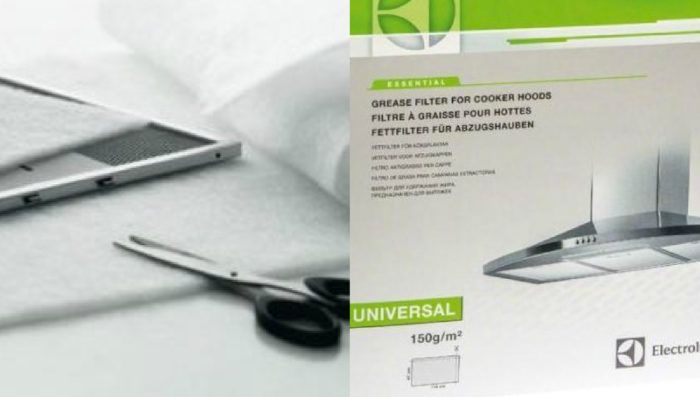
Made from white polyester. Product dimensions: width (cm) - 114, length (cm) - 47, thickness (cm) - 2 (increased for greater fat absorption efficiency), weight - 500 g. You can easily adjust the desired size by cutting off the excess. Requires regular replacement after 3-4 months, depending on the intensity of use of the hood.
Cost: 650 rubles. (on the manufacturer's website 314 rubles)
- Versatility (you can cut it yourself to the desired size), suitable for any hood;
- The thickness is increased, which allows you to absorb fat evaporation more efficiently and use it longer (3-4 months).
- Relatively high price, although the service life fully justifies it.
Electrolux E3CGB001 Grease Filter
votes 0
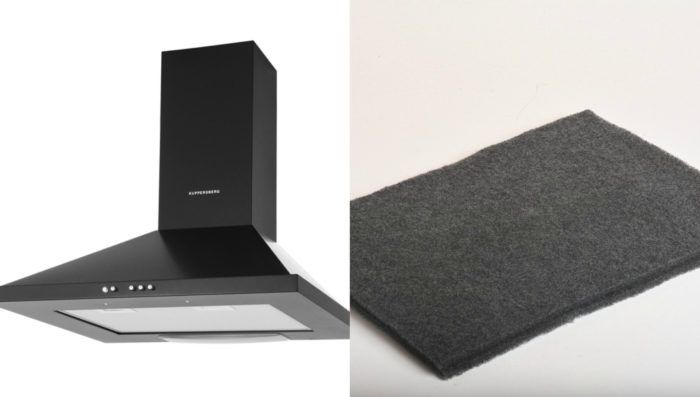
The standard size from the manufacturer is 114 * 47 cm. The material of manufacture is natural fibrous fabric, which is subject to simple further processing (does not require special disposal). By simple cutting, you can adjust the filter to the required size.
For convenience and not to miss the time of replacement, the manufacturer has provided a visual indicator that indicates that it is time to install a new filter: when the logo color changes to bright red, you should immediately respond.
Cost: 450 rubles.
- Simplicity and versatility in size;
- Natural fibers are used that do not emit any harmful substances around them;
- Long time use;
- No need to resort to special disposal;
- There is an indicator that will tell you when the product is out of service.
- Price;
- The need for regular replacement.
Topperr FV1
votes 0
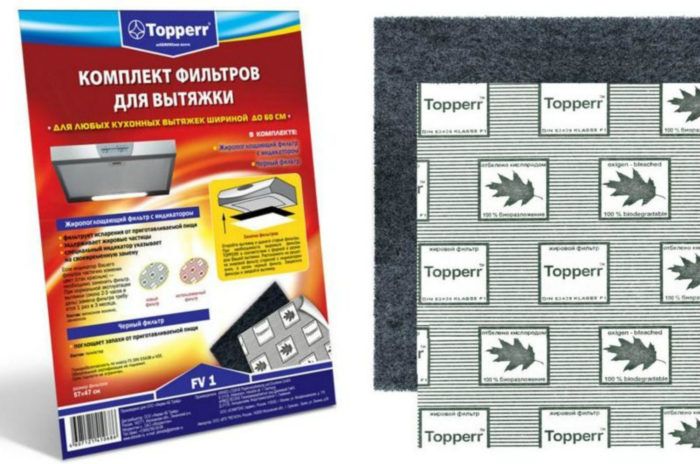
Country of origin - Germany. The kit includes 2 filters measuring 47X55 centimeters, that is, they are perfect for any hoods 50-60 centimeters wide. The presence of the Topperr-indicator (paper substrate with logos) will tell you when to change the filter: the gray color of the picture will change to red.
Cost: 399 rubles.
- 100% biodegradable material that does not harm health and the environment;
- Includes 2 filters;
- The ability to independently adjust the size;
- There is a hint indicator for timely replacement.
- Requires relatively frequent replacement.
Top House TH F 130i
votes 0

Production - Germany. Package contents — 2 pcs. Dimensions: 57 cm * 47 cm. Made of natural fireproof material. Suitable for any hoods with a width of not more than 50-60 cm. There is a visual indicator that indicates the need for replacement.
Cost: 261 rubles.
- The instruction does not specify a specific model of the hood, suitable for any, the width of which is not more than 60 cm;
- Equipped with 2 filters per pack;
- Made from material that does not ignite at high temperatures;
- There is an indicator for notification of a change to a new one.
- Service life on average no more than 2 months.
The best universal carbon filters for kitchen exhaust units
They are liners with carbon impregnation, the dimensions of which can be adjusted independently to the desired dimensions of the hood.
Filtero FTR 02
votes 0

The kit consists of a carbon insert and an additional grease filter. Size - 57 by 47 cm, suitable for any hood with dimensions up to 60 cm. Unlike its own kind, it has a large thickness, which guarantees a long service life. Indicator indicators on the grease filter will help you not to miss the replacement time.
Cost: 560 rubles.
- Fiber density and good liner thickness;
- Can be used for 4 months;
- Affordability.
- During installation, it may be dusty and crumble after trimming.
Zumman F.V.1
votes 0
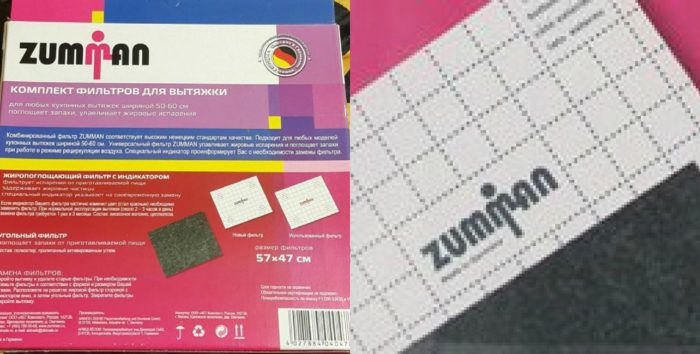
Flexible filter made of cellulose fibers impregnated with carbon impregnation. The kit includes an additional grease trap with an indicator.It can be used in any exhaust unit that does not exceed the size of the liner (that is, up to 60 cm).
Cost: 450 rubles.
- It has the ability to absorb smoke well when frying on the stove;
- Completely biodegradable and does not require special disposal;
- A significant plus is the existing indicator that controls the replacement period;
- Price availability.
- Requires regular replacement;
- It does not always do a good job of cleaning the air from odors.
Elikor 5334009
votes 0
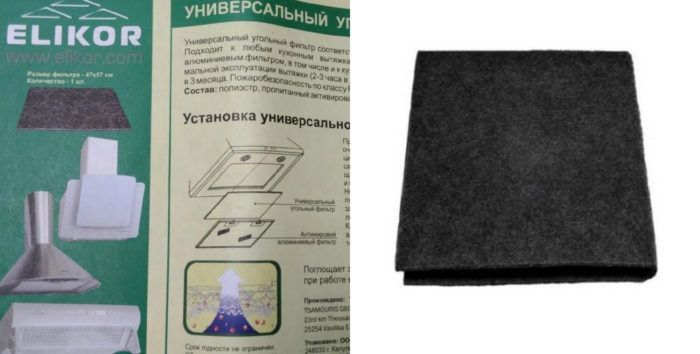
Material - polyester fibers. Size 57*47. Ease of use, affordable price and well-known manufacturer is an excellent combination for the popularity of the product. It is enough to cut the required size along the frame of the grease filter and put it in the appropriate place behind the coarse filter.
Cost: 390 rubles.
- The versatility of the model, allowing use in any hood;
- Application with other purpose is possible: for example, automobile climatic systems;
- Affordable price combined with quality.
- Impregnation carbon filters need to be replaced frequently.
Fine charcoal cassette filters for kitchen exhaust units
Zeman TCF-025
votes 0

Initially, this cassette-type carbon filter was designed for hoods from Elikor. It is great for more than 15 models. The versatility of the shape (diameter 200 mm) allows the use in devices from other manufacturers, such as Cata and JetAir.
The case is made of strong heat-resistant plastic. Inside are large coal granules that successfully purify the incoming air. The average life of such a filter is about six months.
Cost: 260 rubles.
- It has no effect on the performance of the hood;
- Made of durable material with good heat resistance;
- Affordable price;
- Versatility of use in different models of hoods.
- Single-piece implementation (1 pc. in the set), although the list of units in which you can use there are twin-engine ones.
Krona KU
votes 0

Production China. Initially, the appointment - Crohn's hoods. The diameter of the durable plastic cassette is 160 mm. The filler is medium-sized coal granules. Used in more than 7 series of Krona exhaust units.
The universal round shape and diameter allow it to be used in models from other manufacturers, including those with two engines.
The cost of a set of 2 pcs. about 1600 rub.
- In recirculation hoods, it cleans the air well from odors;
- It is also used for ventilation models;
- Suitable for other manufacturers;
- Muffles the noise of the engine;
- Ease of installation and strength of fixation.
- It comes with 2 pieces, so the cost is high.
Elikor F-05
votes 0

Fine filter for Elikor Optima and Elikor Integra hoods. But if the air cleaner has a width of 50-60 cm and a socket for a round filter of 139x26 mm, then the F-05 will easily fit.
Complete set of 2 filters per pack with an approximate cost of about 700 rubles apiece. Strong body and large granules. It cleans the air well both in recirculation hoods and with an exit to the ventilation. The average service life is about 6 months.
Cost: 1400 rubles.
- Activated carbon is coarsely granulated, therefore it perfectly fulfills its main function of trapping odors;
- Ease of removal / installation (simply screwed onto the thread);
- Serves without change up to six months.
- It will be effective only in equipment with low productivity within 400 m3/h.
The quality and durability of air cleaning equipment directly depends on the filters and their service life. The modern market offers a wide range kitchen hoods and accessories for them. The main thing in the selection process is to choose the right model, for which it will be easy to buy new grease or charcoal filters, then the exhaust unit will work out the time set by the instructions, or maybe exceed it.
new entries
Categories
Useful
Popular Articles
-

Top ranking of the best and cheapest scooters up to 50cc in 2022
Views: 131654 -

Rating of the best soundproofing materials for an apartment in 2022
Views: 127694 -

Rating of cheap analogues of expensive medicines for flu and colds for 2022
Views: 124522 -

The best men's sneakers in 2022
Views: 124039 -

The Best Complex Vitamins in 2022
Views: 121943 -

Top ranking of the best smartwatches 2022 - price-quality ratio
Views: 114982 -

The best paint for gray hair - top rating 2022
Views: 113398 -

Ranking of the best wood paints for interior work in 2022
Views: 110321 -

Rating of the best spinning reels in 2022
Views: 105332 -

Ranking of the best sex dolls for men for 2022
Views: 104370 -

Ranking of the best action cameras from China in 2022
Views: 102220 -

The most effective calcium preparations for adults and children in 2022
Views: 102014


